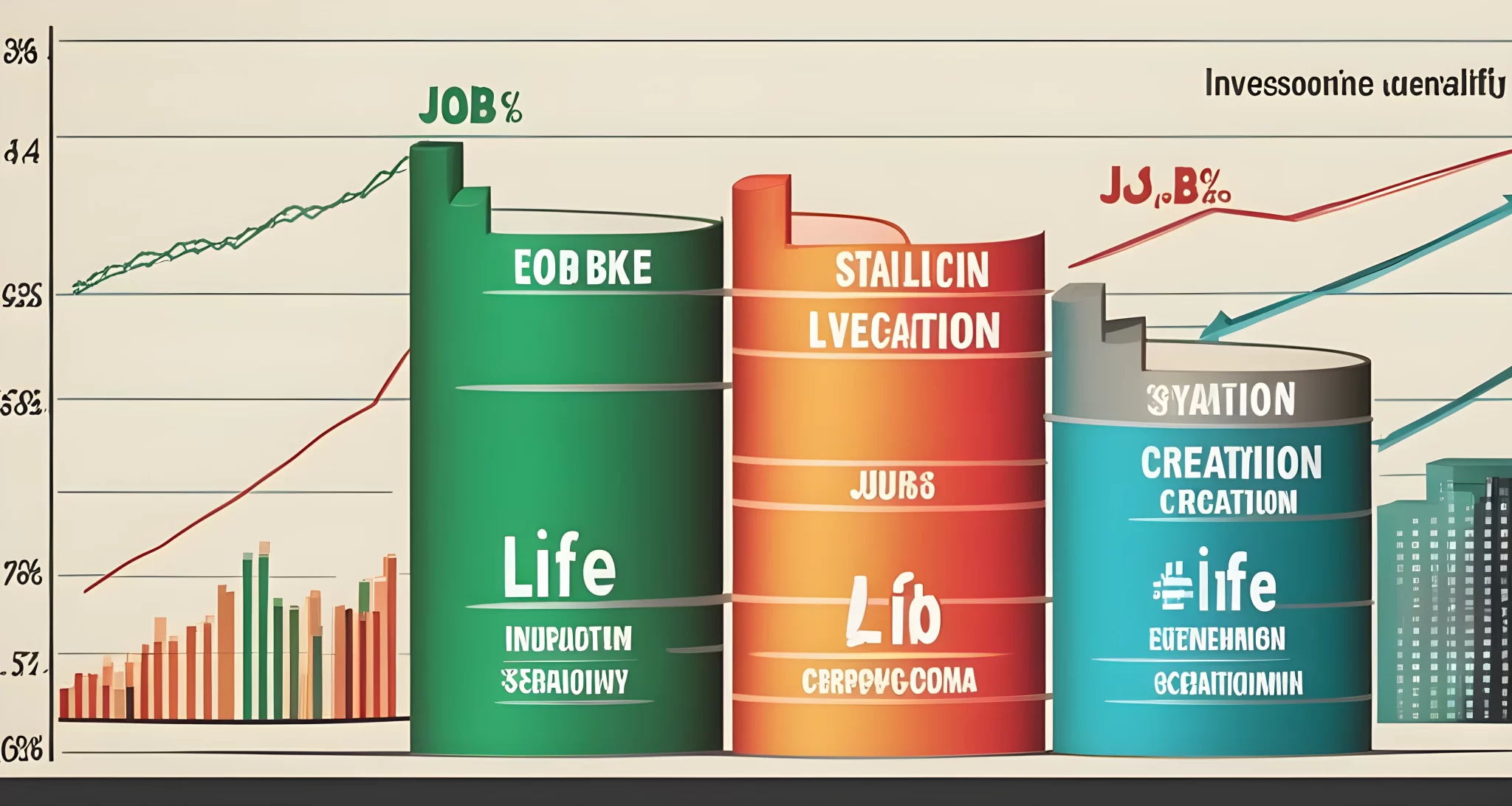Role of Venture Capital in Addressing Stability Concerns
Venture capital (VC) plays a crucial role in addressing stability concerns by investing in innovative companies and supporting their growth. VC firms provide capital and expertise to startups and early-stage companies, helping them develop and scale their products or services. This investment can lead to improved financial and operating results, increased innovation, and the creation of jobs.
One key aspect of VC’s role in addressing stability concerns is its focus on investing in innovative companies. These companies often have disruptive technologies or business models that have the potential to create significant value in the market. By providing funding to these innovative companies, VC firms can help them bring their ideas to market and compete effectively with established players.
Additionally, VC investment supports the growth of startups and early-stage companies. This support can come in various forms, including financial backing, strategic guidance, and access to valuable networks. As a result, these companies can develop and scale their products or services more rapidly, which can lead to increased market share and revenue generation.
Furthermore, the impact of VC investment on company stability cannot be overstated. Research has shown that startups that receive VC funding are more likely to achieve successful outcomes, such as increased revenue growth and higher profitability The influence of venture capital on startups. This stability is not only beneficial for the companies themselves but also for the broader economy, as it leads to job creation and economic growth.
In conclusion, VC firms play a critical role in addressing stability concerns by investing in innovative companies and supporting their growth. This investment not only helps these companies thrive but also contributes to overall economic stability through job creation and increased innovation.
Overall word count: 300

Investment in Innovative Companies and Supporting Growth
VC firms often invest in a company’s balance sheet and infrastructure, providing the necessary resources for the company to grow and become attractive to larger corporations for acquisition. This process can help stabilize the company’s financial situation and improve its overall stability. VC firms also invest in a narrow band of technological innovations that fit the requirements of institutional venture capital. This focus on specific types of innovations can help ensure that the companies they invest in are well-positioned for long-term success, contributing to the stability of the broader economy.
In addition, VC firms play a crucial role in supporting the growth of innovative companies by providing them with not only financial resources but also strategic guidance and industry connections. This support can be instrumental in helping innovative startups navigate the challenges of scaling their operations and reaching new markets. By investing in these companies, VC firms contribute to the overall stability of the economy by fostering a culture of innovation and entrepreneurship.
Furthermore, VC investment in innovative companies often leads to job creation and economic growth, as these companies expand their operations and create new products or services. This ripple effect can have a positive impact on local and national economies, contributing to overall stability and prosperity.
To learn more about how VC investment influences economic stability, read the article Sorting Out Startup Money Obstacles.

Impact of VC Investment on Company Stability
VC investment plays a crucial role in the stability of companies by providing the necessary financial support for their growth and development. According to Venture capital’s contribution to startup success, VC firms contribute to the overall stability of the economy by stimulating the production of firms, jobs, and aggregate income. This can help create a more stable economic environment by fostering innovation and entrepreneurship.
Job Creation and Economic Growth
By injecting capital into innovative companies, VC firms help create new job opportunities, which in turn leads to economic growth. This not only benefits the company receiving the investment but also has a ripple effect on the overall stability of the economy.
Innovation and Entrepreneurship
VC investment enables companies to pursue innovative ideas and solutions that can contribute to long-term stability. These investments allow companies to take risks, experiment with new technologies, and ultimately drive progress in various industries.
Stabilizing Effect on Startups
Startups often face high levels of uncertainty and instability. However, with the backing of VC firms, startups can access the necessary resources to navigate through challenges and achieve stability as they grow.
Long-Term Stability
VC firms not only provide financial support but also offer valuable expertise, mentorship, and networking opportunities. This guidance can help companies build a solid foundation for long-term stability and success.
In conclusion, VC investment plays a significant role in ensuring company stability by fueling innovation, creating job opportunities, and driving economic growth. By providing support to startups and innovative companies, VC firms contribute to building a more stable economic environment overall.

Contribution of VC Firms to Economic Stability
Venture capital (VC) firms play a crucial role in contributing to economic stability. By providing funding to innovative and high-growth potential startups, VC firms stimulate job creation, promote technological advancements, and drive overall economic growth. The investment in these startups not only supports the growth of individual companies but also has a ripple effect on the economy as a whole.
One of the key contributions of VC firms to economic stability is their support for innovative companies and their role in fostering entrepreneurship. Startups often lack the financial resources to bring their innovative ideas to market, and this is where VC firms step in Growth through startup funding. By providing the necessary capital, expertise, and network, VC firms enable these startups to develop groundbreaking technologies and disruptive business models that have the potential to reshape industries and drive economic progress.
Furthermore, VC investments have a direct impact on job creation. As startups grow and expand with the support of VC funding, they hire more employees, thereby contributing to lower unemployment rates and increased consumer spending. In addition, these companies often attract top talent and foster a culture of innovation, which further fuels economic development.
Moreover, the success of VC investments can lead to substantial returns for investors, which can then be reinvested into other promising startups or businesses. This cycle of investment not only provides funding for new ventures but also drives overall economic activity by channeling capital into productive and high-potential areas.
In conclusion, the contribution of VC firms to economic stability is significant. By fueling the growth of innovative companies, creating jobs, and driving investment returns, VC firms play a vital role in fostering economic stability and prosperity. Their support for high-potential startups not only benefits individual companies but also has a positive impact on the broader economy.

Factors Influencing the Success of VC Investments
When it comes to venture capital (VC) investments, success is not guaranteed and is influenced by various factors. VC firms must carefully consider these factors to ensure the stability and success of their investments.
Quality of Company Management
The leadership and management of a company play a crucial role in determining its success. VC firms often assess the quality of company management before making investment decisions. Strong leadership, industry expertise, and a clear vision for growth are key indicators of a company’s potential success.
Market Demand
The demand for a company’s products or services is another critical factor that can influence the success of VC investments. A thorough market analysis is essential to gauge the competitive landscape, customer demand, and potential growth opportunities. Understanding market trends and consumer behavior is vital for identifying companies with high growth potential.
Economic Conditions
Economic stability and market conditions can significantly impact the success of VC investments. A strong economy with favorable interest rates and consumer spending habits can create an environment conducive to business growth. Conversely, economic downturns or market volatility can pose challenges for companies seeking expansion, affecting the success of VC investments.
Business Model Viability
The viability of a company’s business model is a key consideration for VC firms. A scalable and sustainable business model that generates revenue and demonstrates potential for profitability is essential for long-term success. VC firms evaluate the strength of a company’s business model to assess its ability to withstand market fluctuations and competitive pressures.
Access to Resources
Access to resources, including talent, technology, and strategic partnerships, can significantly impact the success of VC investments. Companies with access to valuable resources are better positioned to innovate, grow, and adapt to changing market dynamics.
In conclusion, VC firms must carefully evaluate these factors to make informed investment decisions and contribute to the stability and success of innovative companies within the broader economy.
For further insights into the impact of venture capital on business success, you can refer to Business growth through capital.
FAQ
What role does venture capital play in addressing stability concerns?
Venture capital plays a crucial role in addressing stability concerns by investing in innovative companies and supporting their growth. vc firms provide capital and expertise to startups and early-stage companies, helping them develop and scale their products or services.
How do vc firms contribute to the overall stability of the economy?
Vc firms contribute to the overall stability of the economy by stimulating the production of firms, jobs, and aggregate income. this can help create a more stable economic environment by fostering innovation and entrepreneurship.
What factors can influence the success of vc investments?
The success of vc investments can be influenced by factors such as the quality of the company’s management team, the strength of the market demand for the company’s product or service, and the overall economic conditions.
What types of innovations do vc firms typically invest in?
Vc firms invest in a narrow band of technological innovations that fit the requirements of institutional venture capital. this focus on specific types of innovations can help ensure that the companies they invest in are well-positioned for long-term success, contributing to the stability of the broader economy.
